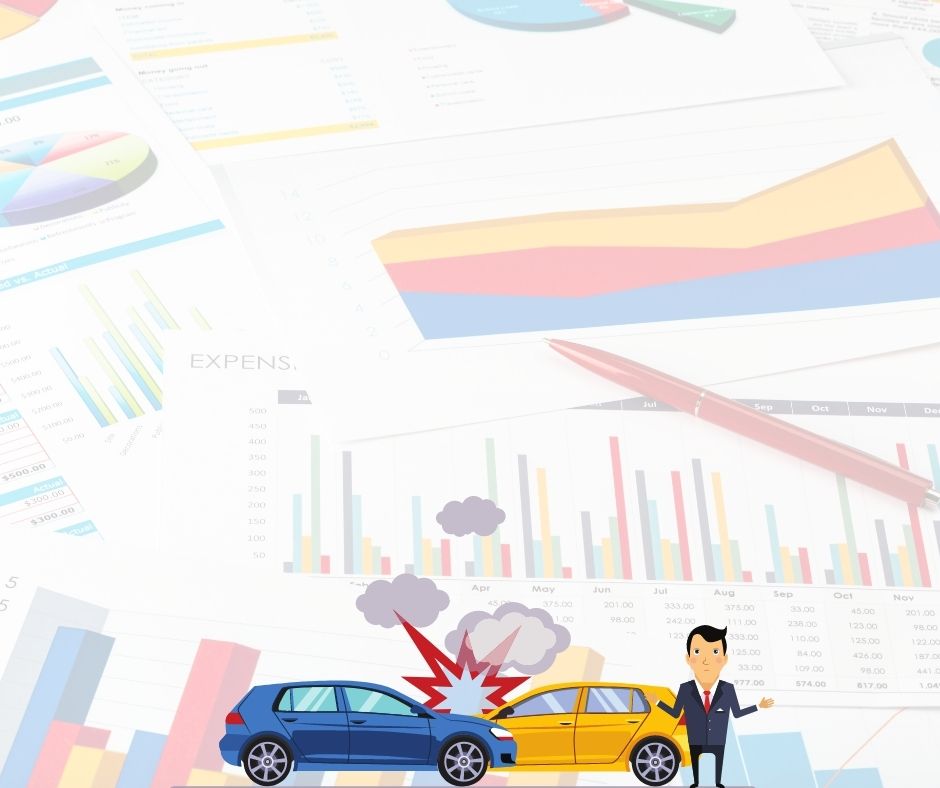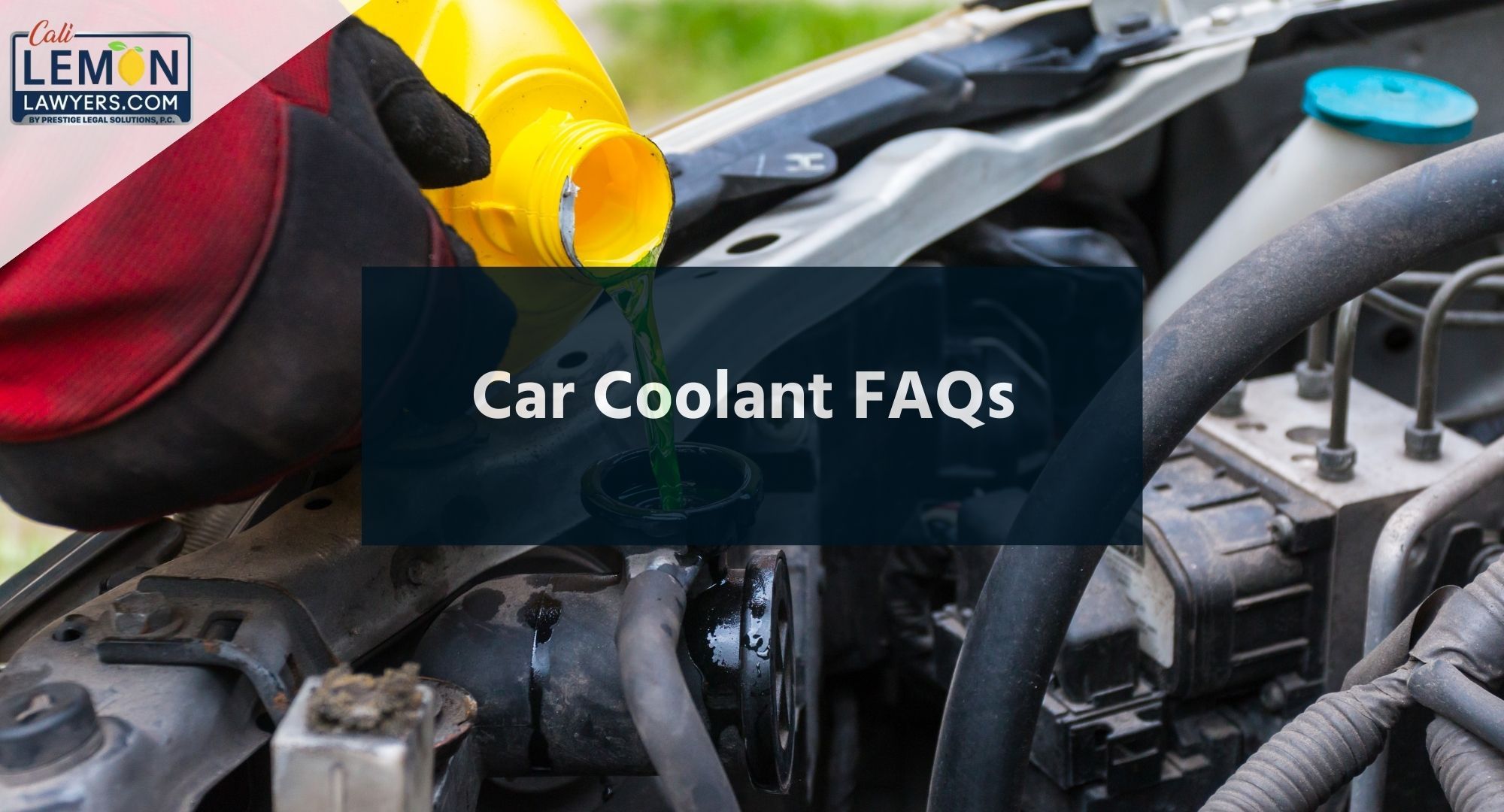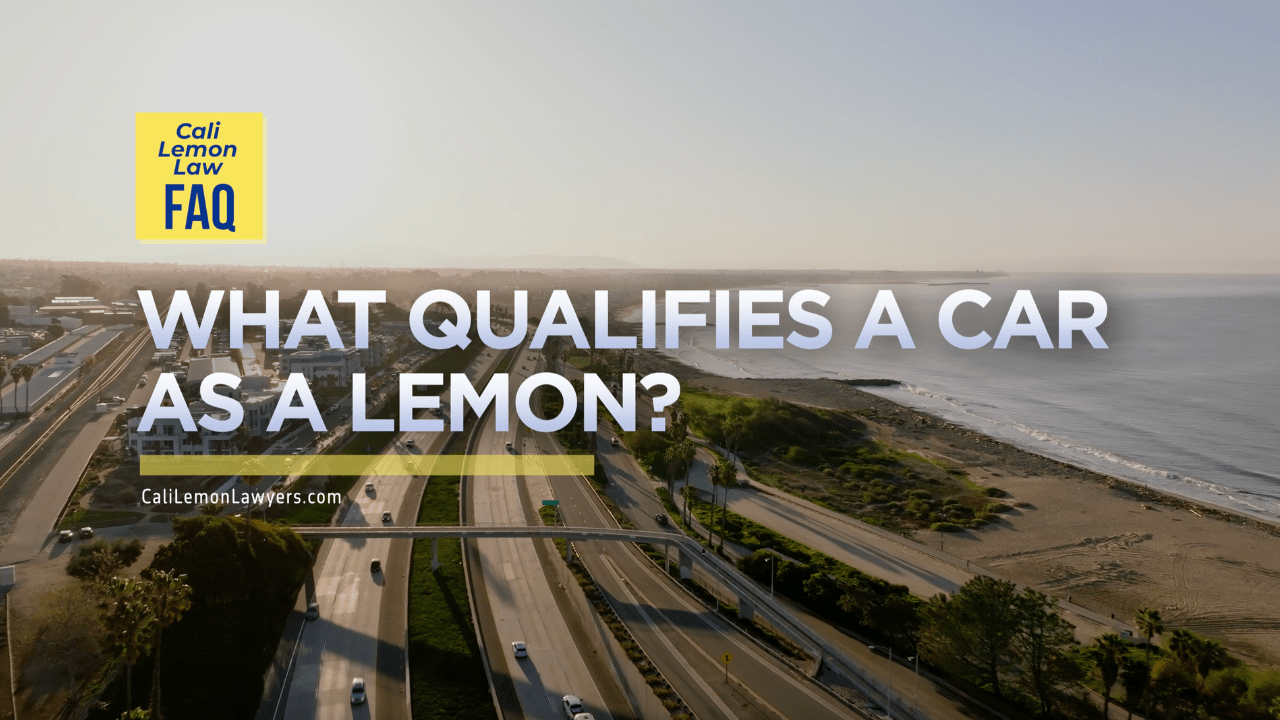Lemon Law Settlements & Compensation: Complete Guide
Are you the owner of a defective car that was leased or purchased in California? If so, you’re not alone. A Lemon is commonly defined as a car with recurring problems that impact its safety, value, or usability.
California has a consumer-friendly Lemon Law, which allows you to seek compensation for your defective vehicle. Our law firm has evaluated over 40,000 cases and filed thousands of California Lemon Law claims. While settlement amounts can vary greatly, the average lemon law settlement in California is substantial.
In this article, we will dive into the intricacies of the California Lemon Law, and explain the factors that impact the average settlement amount. When you buy a new car, it’s only fair for you to expect it to function properly and be in pristine condition. No one wants to find out that their new vehicle doesn’t work properly or has a long-term issue.
The lemon law attorneys at Cali Lemon Lawyers serve the entire state of California. We have ample experience assisting clients with lemon law claims free of charge until your case is won. ¿Hablas Español? Contáctenos ahora para recibir más información.
The Average Lemon Law Settlement in California
There is no such thing as an “average” lemon law settlement. In general, settlements under California’s lemon law may vary greatly based on the car’s make and model, as well as its age, purchase price, and mileage. Furthermore, the newer the vehicle and the higher the initial price tag, the bigger the settlement amount. This is, however, merely a general rule of thumb and should not always be relied upon.
Consumers who work with an experienced lemon law attorney tend to fare better in achieving maximum lemon law settlements. A skilled lemon law attorney understands how to prepare the necessary documentation, communicate with the manufacturer and establish a strong case. A good lemon law attorney will not hesitate to take on an automobile manufacturer in order to obtain the best potential payment for their clients.
At Cali Lemon Lawyers, we’re used to going toe-to-toe in each and every legal battle and don’t stop fighting until we win.
How to Get A Settlement Offer
You can get a lemon law settlement offer in California by taking the proper steps in preparing your case. Before submitting a legal lemon law claim, you’ll need to gather all documentation to show that you have made a “reasonable number of attempts” to get the car fixed. Therefore, it is important to keep all your work orders and repair invoices from trips to the mechanic or the dealership’s service department. The law does not specify how many repair efforts constitute a “reasonable amount,” but an experienced lemon law expert can assist you in determining this. Call Cali Lemon Lawyers if you have any questions regarding whether your car qualifies as a lemon.
So, what qualifies as a lemon?
A “lemon” is a car, truck, SUV, or other vehicle that has not performed as expected. Despite taking the automobile to the dealer for repairs, a vehicle like this does not function properly due to electrical or mechanical issues. Find out if your vehicle is still covered by the initial manufacturer’s warranty to see if you have a Lemon Law claim. If it is, you most likely have a lemon law case. If you own a used car, you must have one of three warranties in order to file a Lemon Law claim.
These three warranties include:
- A lemon law buyback warranty
- The manufacturer’s original new-car warranty
- A certified pre-owned warranty from your dealership
You need to get all of your ducks in a row because the lemon law claims process is rather specific. Sending a demand letter to the manufacturer of your car is the first step. This can be done on your behalf by one of our California lemon law attorneys. Our lawyers anticipate opposition, but they are unaffected and aggressively negotiate on your behalf.
Lemon Law Compensation: What Happens When You Win?
Filing a claim under the California lemon law might result in a variety of results. Take a look at the California Department of Consumer Affairs’ list of the most common lemon law settlements. Keep in mind that each case is unique, and while settlement patterns may exist, there is no assurance that what your neighbor received for the identical car is going to be the same for you. In order to speed up the procedure, it is sometimes down to what the consumer agrees to.
The following are all of the possible settlement options:
- A replacement vehicle
- Refund equivalent to the purchase price
- An additional repair attempt
- “Cash and keep”
- Mileage offset
- Extended service contract
- Reimbursement for incidental expenses
- Nothing
1. A Replacement Vehicle
The first option is for the manufacturer to replace the lemon vehicle. This is less common. Even if your lemon is brand new when you buy it, another model year is almost certain to come out before any legal action is taken. In this instance, you generally want to obtain a vehicle with a newer model year than your lemon. Lemons from 2021 can be replaced with 2023 models in hopes that the issues with that model have been resolved during that period.
2. Refund of the Purchase Price
This is the best-case and most common situation for many individuals dealing with lemon law cases. A customer who purchases a Dodge and has nothing but problems with it is typically delighted to receive a refund and walk away. The customer can then use the funds from the refund to buy a completely different car. In this case, the vehicle is returned to the manufacturer or dealership.
The amount of the refund issued may be less than the original purchase price for a multitude of reasons. For example, if there is evident damage to a car, such as if it has been in an accident or has suffered damage from not getting an oil change. If you want additional information on how a refund is computed, prequalify below.
3. An Additional Repair Attempt
A lemon vehicle is typically identified for having the same issue with multiple repair attempts. The dealership needs to be given a reasonable number (2 or more) of attempts to fix it. Well documented repair attempts under warranty are the best ammo for your case.
4. “Cash and Keep”
The offer may be a “cash and keep,” in which case you are given money for your trouble but get to keep the vehicle. If you can live with the lemon’s problem — or believe it can be fixed for good — this could be a good choice.
Accepting the cash-and-keep option might be a challenging decision, especially considering that the defect (if not addressed properly) could put your safety at risk. It is a good idea to consult with your attorney. Ask if he/she thinks this is the best possible outcome and what the alternatives are.
Without understanding more about the other option of lemon law buybacks, it would be challenging to assess if a cash-and-keep settlement would be a suitable fit for you. In most circumstances, if you win, you receive either a cash-and-keep settlement or a lemon law repurchase.
Lemon law buybacks are more frequent than cash and keep settlements.
A cash-and-keep lemon law settlement differs from a consumer lemon law “buyback” in that the consumer does not return the car, and the supplier does not buy it back. Rather, the consumer retains custody of the car, and the manufacturer compensates the consumer.
If the car is leased, however, the consumer almost always returns it once the lease expires.
Keep the following in mind:
- In a cash-and-keep agreement, the manufacturer acknowledges that the car in question is a lemon, or at the very least agrees to compensate the customer.
- Furthermore, the consumer retains custody of the car, either through ownership or an ongoing lease, until the conclusion of his or her lease contract.
- The manufacturer then compensates the customer for the pain, suffering, or trouble they endured for dealing with a faulty car. Even if the manufacturer does not believe the car is a complete lemon, the manufacturer may choose to compensate the customer.
5. Mileage Offset
If your car is a “lemon” and you get a replacement or refund, the manufacturer has a right to deduct a prorated amount from the total reimbursement for the time you drove the car without experiencing any problems. The mileage offset is computed by dividing 120,000 (the average life expectancy of a car as determined by statute) by the mileage at the initial warranty repair attempt for the problem that caused your car to be a lemon, and then multiplying that amount by the vehicle’s purchase price.
6. Extended Service Contract
Occasionally, a manufacturer offers an extended service contract for the lemon car, allowing it to be repaired for longer than the standard warranty period. While this may not seem ideal at first, it can be advantageous if it covers anything else that may go wrong with the automobile in addition to the known lemon issues.
7. Reimbursement for Incidental Expenses
You may be entitled to payment for some expenses incurred as a result of the lemon, in addition to the possible settlements outlined above. You may be reimbursed for towing and rental car costs.
8. Nothing
There is always the possibility that nothing is going to come from your lemon law claim. Regardless of whether the client and the California lemon law attorney believe the case is valid, there is always the possibility that the law (or a jury) is going to rule against the client. While California’s lemon laws are among the most consumer-friendly in the country, things don’t always work out.
Lemon Car Statistics in the US
The Lemon Law protects consumers in California from defective autos. However, what are the consequences of malfunctioning cars for consumers? Automobile accident statistics, vehicle safety recalls, and product liability statistics all indicate how hazardous lemons may be.
Interesting California Lemon Law statistics:
- Over 200,000 new vehicles are registered in California every month.
- A vehicle is considered a lemon in California if it has a defect that “substantially impairs” the vehicle’s use, value, or safety, and the manufacturer or authorized dealership has been unable to fix the issue after a reasonable number of attempts.
- There were over 21,000 lemon law cases filed in California between 2014 and 2018, according to the California Department of Justice.
- The most common issues with defective vehicles in California include engine problems, transmission problems, and issues with the electrical system.
- The average lemon law settlement in California varies depending on several factors, such as the severity of the defect, the value of the vehicle, and the amount of time and effort required to resolve the issue. Settlements can range from a few thousand dollars to the full value of the vehicle.
- The California Lemon Law applies not only to new vehicles, but also to used vehicles that are still covered by a manufacturer’s warranty.
- Seeking legal help from an experienced lemon law attorney is crucial to ensure that you receive the compensation that you deserve.
The Numbers: Safety Recalls
- Over 390 million automobiles have been recalled by the National Highway Traffic Safety Administration (NHTSA) based on safety problems since 1966.
- Takata Corp., a provider of airbags to leading brands such as Honda, Toyota, Ford, Nissan, and BMW has issued a recall for more than 70 million vehicles due to potentially explosive airbags. In the US alone, these defective airbags have resulted in at least 180 injuries and 11 deaths.
- The National Highway Traffic Safety Administration has also had to recall over 66 million car components and 46 million tires due to faults.
- In the United States, 15.5 million automobiles were recalled in 2011. While this amount is lower than the 20 million recalled in 2010, it is still greater than the 2008 and 2009 figures (8.6 million and 15.2 million).
- Honda/Acura had the most recalls in 2011, with 3.8 million vehicles. Toyota came in second with 3.5 million vehicles, followed by Ford with 3.3 million.
- Other companies recalled significantly fewer vehicles than the top three. With 773,000 recalls, Chrysler placed in fourth, and Subaru came in fifth with 591,752 cars recalled. Furthermore, Hyundai (503,418), General Motors (500,000), Nissan (302,013), Volkswagen (289,740), and BMW (276,368) were the next five companies on this recall list.
- Toyota was previously forced to recall 7.5 million vehicles due to door fires. This comprised a variety of vehicles from 2007 through 2009. Toyota also recently recalled 2.77 million cars (various models) from 2001 to 2011 due to improper steering.
Many of the flaws linked to recalls have resulted in death or serious injury. In 2010, for instance, GM issued a recall for 1.5 million vehicles owing to engine fires that resulted in 14 accidents. Toyota issued an 8.5 million car recall in 2009 owing to power steering failure, which resulted in 2,000 incidents, 16 deaths, and 243 injuries.
Understanding These Statistics
There are a plethora of statistics on car crashes and safety recalls; however, what do they really tell us? To begin with, the data shows that automobile accidents are a big source of concern in the United States. They are not only common, but they are also a major cause of death among the younger generation. Moreover, auto accidents cause more harm than only the loss of life; they also result in severe injuries that can last a lifetime, as well as financial devastation.
Statistics show that lemons are more common than we might believe when it comes to product recalls. Every year, major automakers recall hundreds of thousands – if not millions – of motor vehicles due to a variety of issues, including engine fires, door fires, faulty steering, airbag problems, headlight failure, unexpected loss of power, and other issues. In some instances, the faults linked to these recalls have resulted in massive accidents, resulting in serious injuries and deaths, demonstrating how deadly lemons might be.
Contact Cali Lemon Lawyers Today!
Got a lemon? We get you paid. Fast & easy! Cali Lemon Lawyers’s qualified and experienced lemon law attorneys have assisted hundreds of individuals just like you. We can immediately put together a solid legal case on your behalf and aggressively negotiate to get you the compensation you deserve. In California, the statute of limitations on lemon law claims is set at four years. Take action right now! Contact us to speak to a highly qualified California lemon law attorney today!
Start Your FREE Case Review
or give us a call at:

Start Your FREE Case Review








